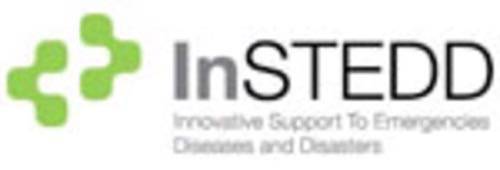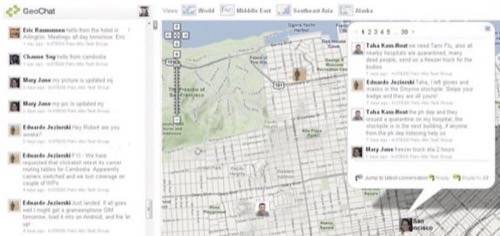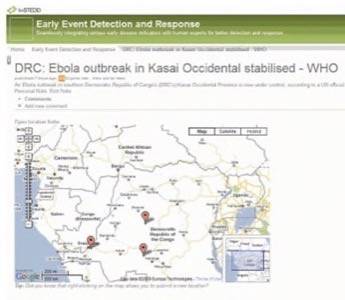At ETech today members of the InSTEDD team spoke about how they have been building SMS and mapping applications, in the Mekong Delta in the jungles of South East Asia. InSTEDD (Innovative Support to Emergencies Diseases and Disasters) was organized in 2006-2007 and aims to harness technology to help with early warning, prevention and response to disasters and public health threats. Some of the issues InSTEDD came across in the Mekong Delta were figuring out multilingual issues, human interaction design for 140 characters, ad-hoc team creation, and data integration of disconnected systems. After the jump is a summary of their presentation at ETech.

CEO Dr. Eric Rasmussen spoke about how InSTEDD has a focus on collaboration, using both technical and sociological means. Everything they do is free and open source. Eduardo Jezierski, Vice President of Engineering, spoke about how information flow is important – you need good sensor and human networks to detect things early. The people in villages need more data, however currently they don’t get this. It’s not necessarily a technical problem, but economic and sociological problems. For example 3G may cover the area, but inhabitants can’t afford it. Another issue is that mobile phones don’t necessarily support the different languages spoken by people, or different people speak different languages and so collaborating is difficult. Another issue is that it actually costs about the same amount to send an SMS message as it takes to buy a handful of rice, so obviously priorities come into play.
InSTEDD has built a product called InSTEDD Geochat, which is a service combining SMS, Twitter and email. However it is SMS-only interaction for users, as most don’t have browsers. Driving the system is a “semi-structured” API with an extensible pipeline. However the idea of this system is that the participants don’t need to be concerned with all the technology behind it, they can just interact with the system using SMS.

Interoperability is an issue, but this is being addressed with an InSTEDD service called Mesh4x. It syncs data from diverse applications, sources and devices. It works via HTTP, files and SMS. It supports open standards, such as FeedSync – an open protocol that describes data formats and algorithms used to version information in a mesh. Interestingly this is a Semantic Web application, with RDF as the default data representation.
The next challenge is using this data for collective action. “Today it takes a lot of coordination to get two organizations working together”, said Jezierski. So they have been working on a system called Evolve – described as an RSS Reader for groups by Jezierski. It aims to provide collaborative decision support around streams of information. The service tries to sift through data and identify emerging health-related events. It also has an automatic feature extraction, for data classification and tagging. There is a human input and review module that “allows users to comment, tag, and semantically rank the elements (positive, neutral, or negative).” The overall theme is that it is a mix of machine and human intelligence – the machine can recommend a course of action, but people trigger the actions.

Jezierski has worked in the commercial sector before and he noted that “doing stuff to help people in Cambodia is way harder than running the London Stock Exchange”. He said for example that for Twitter to reach wide adoption in these places, much work needs to be done to enable it. In particular he thinks a “better shared language” for technologies is needed for third world work – much in the same way that web 2.0 evolved a specific language in the tech world (tagging, user-generated content, etc).
The InSTEDD Innovation Lab is another project. It’s a “socio-technical” lab in Phnom Penh, Cambodia and mixes InSTEDD’s own team with various other organizations, to work on technologies that help society.
Overall it’s clear that InSTEDD is doing some great work to bring collaborative software and systems into countries that need it the most – for disaster prevention and recovery, healthcare, and other essential needs.










